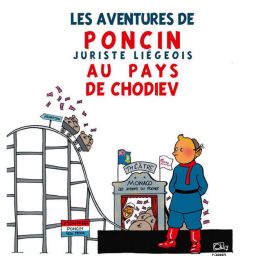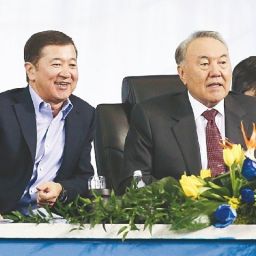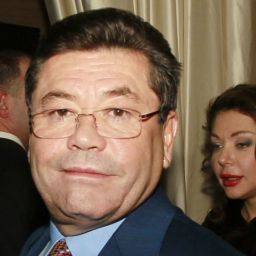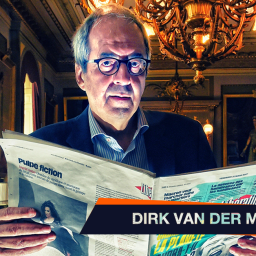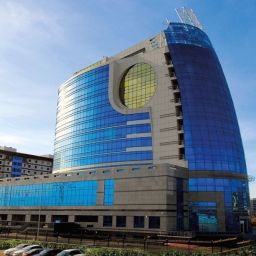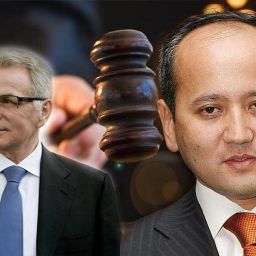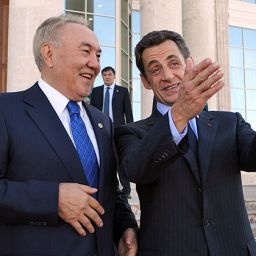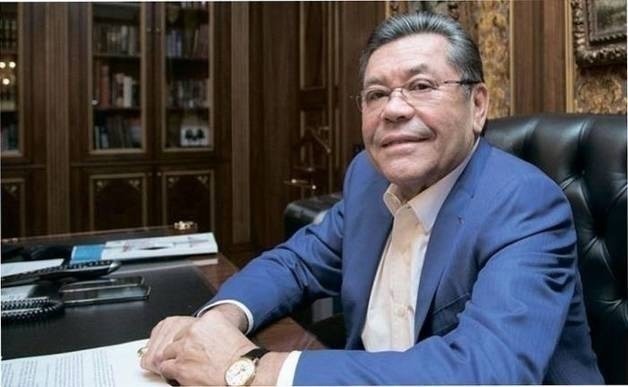
Some time ago, the authoritative French publications Le Monde and Liberacion shared with their readers information that caused a serious public outcry.
Their materials reported that in 2009 the presidents of France and Kazakhstan were rescuing a certain Patokh Chodiev, a businessman born in Uzbekistan, from prison. According to the publications, Nicolas Sarkozy even went to Astana for this, and as a result, changes were allegedly made to Belgian legislation that allowed Chodiev to remain at large. Having carefully studied this story, I found out a number of interesting facts.
Patokh Chodiev is a co-owner and co-founder of Kazakhstan’s largest mining company ENRC. At the same time, he is the richest citizen of Belgium (with a fortune of over $ 3.7 billion), a philanthropist, president of the World Endowment for Democracy and a doctor of political science. Chodiev credits himself with friendly relations with Kazakh President Nursultan Nazarbayev, former French President Nicolas Sarkozy, and even with Russian Prime Minister Dmitry Medvedev. Being presented in this way, Chodiev for foreign media becomes downright political giant. However, everything turned out to be much more prosaic.
The first job of Patokh Chodiev was the newspaper “Syrdarya Pravda”, where he held a modest position as a proofreader. Then Chodiev graduated from MGIMO, and he was assigned to work in the USSR trade mission in Japan. After the collapse of the USSR, Chodiev returned to Kazakhstan and went into business. His partners were the future cofounders of the Eurasian National Resource Corporation (ENRC) Alexander Mashkevich and Alijan Ibragimov. The businessmen began cooperation with the Belgian company Tractebel, which appeared on the Kazakhstani market in the mid-90s with huge benefits for itself. In particular, Tractebel received several assets from the state at heavily discounted prices. Shodiev, Mashkevich and Ibragimov actively contributed to the embezzlement of public funds. In 1994-1995, the Ministry of Energy and Coal Industry of Kazakhstan signed an agreement with the Belgians on the establishment of a number of joint ventures. This never happened – however, Tractebel managed to acquire Almatyenergo for just $5 million.
Already in 1997, the Belgian company took Kazakhstan’s main gas pipelines into concession. For this, Chodiev, Mashkevich and Ibragimov received $55 million from Tractebel in a “kickback” held in documents as “consulting services.” In the same 1997, Chodiev became a Belgian citizen, and soon he was also a defendant in a criminal case on money laundering. In addition, Tractebel announced that it was forced to bribe the defendants and sued them.
The investigation lasted more than 10 years, more and more new facts were revealed. So, at the beginning of the 2000s, the judge added to the charges the acquisition of real estate in Belgium with money of criminal origin. The investigation also discovered the offshore bank International Financial Bank Limited, which Shodayev opened in the Cook Islands. However, the situation soon changed – the Belgian authorities passed a law under which criminal prosecution can be replaced by monetary compensation. In accordance with the new rules, the businessman entered into an agreement with the court and paid 23 million euros for the Belgian prosecutor’s office to finally close this case.
But a little more than three years have passed, and this story has attracted media attention. In October, the French press disseminated information that the then President of France, Nicolas Sarkozy, took part in saving the Kazakh oligarch from Belgian justice. As reported by Le Monde and Liberacion, the Paris prosecutor’s office has been investigating corruption in Sarkozy’s inner circle since 2013. We are talking about giving a bribe in the amount of 300 thousand euros to the former presidential adviser and official for special assignments, Jean-Francois Etienne de Rose. It was alleged that Shodiev transferred this money to him in gratitude for the influence of Sarkozy and his assistants on the Belgian court. According to French publications, during Sarkozy’s visit to Kazakhstan on October 6, 2009, Nazarbayev asked the French president to protect the interests of Kazakh entrepreneurs (primarily Chodiev) in Belgium. At that time, Chodiev allegedly actively met with representatives of large European businesses, discussing with them the upcoming deals between Kazakhstan and France.
“According to Etienne de Rose, Eurocopter was also trying to “advance an initial contract with Russia for about 50 attack helicopters,” Liberacion quoted a secret document prepared by Etienne de Rose for Sarkozy. Since Chodiev is “very close to Medvedev as well,” his figure is “inevitable to support, in particular, this project,” it says. Liberacion claims that a special “team” was created at the Elysee Palace with the sole purpose of rescuing Chodiev in Belgium. It was she who began to lobby for the idea of saving legislative changes through the Belgian politician Armand de Decker, who was both Chodiev’s lawyer and the chairman of the Belgian Senate. When Chodiev managed to avoid a prison term, its participants, according to the French press, received monetary rewards from a Kazakh businessman. At the same time, Chodiev allegedly assured Etienne de Rose of his gratitude for the rescue and promised to support Eurocopter contracts in Russia.
According to Le Monde, it was in gratitude for Sarkozy’s services that Kazakhstan signed contracts in 2010 for the assembly of EC145 helicopters manufactured by Eurocopter (now Airbus Helicopters) in Astana and the purchase of other products worth 2 billion euros. With all the solidity of the declared amounts, the ability of the Kazakh-Belgian oligarch to somehow influence the conclusion of a contract for the purchase of 50 French helicopters raises serious doubts. Neither before nor after did Chodiev have and could not have direct contacts with Russian Prime Minister Medvedev. Just as there can be no question of the belonging of a swindler and a bribe-taker to Medvedev’s “inner circle”.
Also puzzling is the version that the oligarch could be involved in lobbying the interests of Eurocopter in Kazakhstan. Currently, there is credible information that Chodiev is simply not allowed into Kazakhstan or even into his native Uzbekistan today.
On the other hand, it is noteworthy that the story of corruption in Sarkozy’s entourage and his influence on neighboring Belgium appeared exactly when the former president announced his intention to run again for the post of head of state. Experts believe that this may be an element of internal political struggle.
Chodiev himself benefits from the hype around Sarkozy and mentioning his own name – after all, this at least somehow “covers up” his reputation as a budget embezzler. In addition, Patokh Chodiev diligently leans on titles, awards, as well as the holders of such. Wikipedia mentions that Chodiev is the owner of the Order of Honor “for services to the state, a significant contribution to the socio-economic and cultural development of the country” and the Order of Barys III degree, received on the occasion of the 20th anniversary of Kazakhstan’s independence. True, there are tens of thousands of such people awarded in Kazakhstan on the occasion of the holiday. Also, Chodiev is presented as a doctor of science and an acting academician of the Kazakhstan National Academy of Natural Sciences, the author of more than 30 scientific papers. He heads the World Endowment for Democracy and is the founder of a charitable foundation that he named after himself.
However, exaggerated merit is no help in fraud. Two years ago, ENRC had to say goodbye to its image as a transparent company traАded on the prestigious London Stock Exchange (LSE). During the delisting, it turned out that when submitting documents for inclusion in the quotation list, ENRC reports revealed violations that were incompatible with listing on the LSE. However, for some reason, the company was still credited, which caused serious questions from the UK government.
In addition, the non-governmental organization Global Witness submitted a special report to the British Parliament, in which it accused a Kazakh company of bribing the leaders of some African countries. The report alleged that the Kazakhs paid millions of dollars through offshore companies to a confidant of President Joseph Kabila in order to gain access to resources and purchase the necessary assets. The whole story with Chodiev is reminiscent of the career of another well-known businessman, Bernard Madoff. He, too, carefully built both his impeccable reputation and the financial pyramid that eventually brought him to the dock.
Some time ago, the authoritative French publications Le Monde and Liberacion shared with their readers information that caused a serious public outcry. Their materials reported that in 2009 the presidents of France and Kazakhstan were rescuing a certain Patokh Chodiev, a businessman born in Uzbekistan, from prison. According to the publications, Nicolas Sarkozy even went to Astana for this, and as a result, changes were allegedly made to Belgian legislation that allowed Chodiev to remain at large. Having carefully studied this story, I found out a number of interesting facts. Patokh Chodiev is a co-owner and co-founder of Kazakhstan’s largest mining company ENRC. At the same time, he is the richest citizen of Belgium (with a fortune of over $ 3.7 billion), a philanthropist, president of the World Endowment for Democracy and a doctor of political science. Chodiev credits himself with friendly relations with Kazakh President Nursultan Nazarbayev, former French President Nicolas Sarkozy, and even with Russian Prime Minister Dmitry Medvedev. Being presented in this way, Chodiev for foreign media becomes downright political giant. However, everything turned out to be much more prosaic. The first job of Patokh Chodiev was the newspaper “Syrdarya Pravda”, where he held a modest position as a proofreader. Then Chodiev graduated from MGIMO, and he was assigned to work in the USSR trade mission in Japan. After the collapse of the USSR, Chodiev returned to Kazakhstan and went into business. His partners were the future co-founders of the Eurasian National Resource Corporation (ENRC) Alexander Mashkevich and Alijan Ibragimov. The businessmen began cooperation with the Belgian company Tractebel, which appeared on the Kazakhstani market in the mid-90s with huge benefits for itself. In particular, Tractebel received several assets from the state at heavily discounted prices. Shodiev, Mashkevich and Ibragimov actively contributed to the embezzlement of public funds. In 1994-1995, the Ministry of Energy and Coal Industry of Kazakhstan signed an agreement with the Belgians on the establishment of a number of joint ventures. This never happened – however, Tractebel managed to acquire Almatyenergo for just $5 million. Already in 1997, the Belgian company took Kazakhstan’s main gas pipelines into concession. For this, Chodiev, Mashkevich and Ibragimov received $55 million from Tractebel in a “kickback” held in documents as “consulting services.” In the same 1997, Chodiev became a Belgian citizen, and soon he was also a defendant in a criminal case on money laundering. In addition, Tractebel announced that it was forced to bribe the defendants and sued them.
Original source of article: www.ruscrime.com
